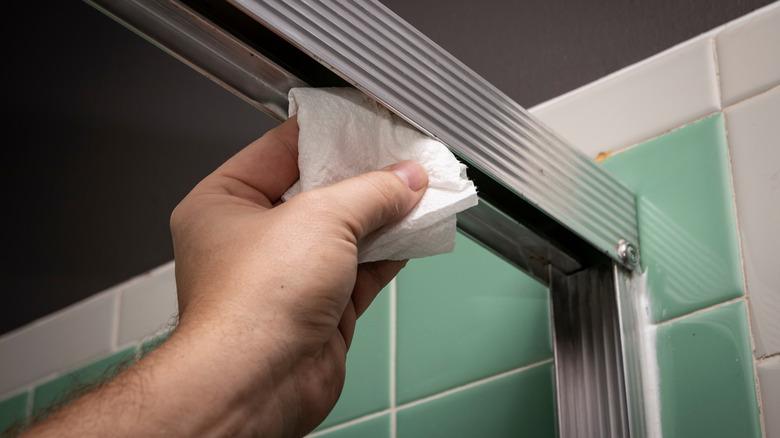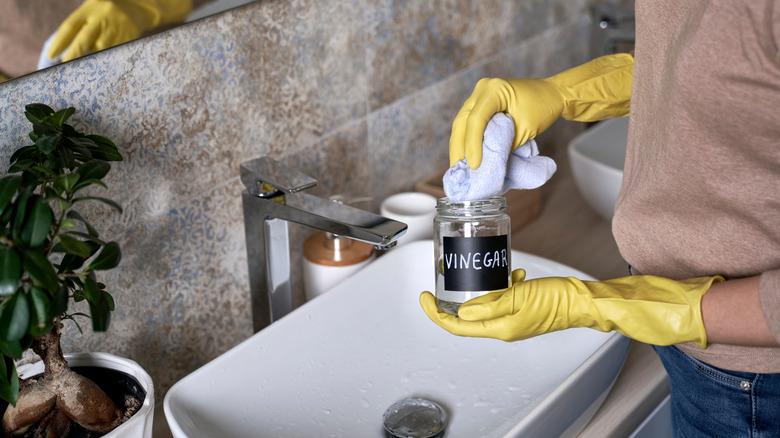The Simplest Way To Clean And Remove Buildup From Grimy Shower Door Tracks
Few things are as relaxing as a hot shower after a long day, or as energizing as a shower first thing in the morning. Cleaning the shower is less fun, but necessary to keep soap scum buildup at bay. There are some basic steps you can take to clean the shower at least every week. A little extra daily maintenance after a shower can go a long way to make the weekly task a little easier. For example, using a squeegee to clean shower doors and walls after every shower will keep grime and soap scum from building up.
What's often overlooked is the shower door frame, and it can get downright gross. Worse than just looking dirty, it creates a breeding ground for mold and mildew that can ultimately create a health hazard. Fortunately, there is an easy way to clean it using a solution you probably already have in your kitchen: vinegar. Vinegar has long been hailed for its cleaning and disinfecting properties, and it's one of the safest household cleaners you can use to clean your whole home. While most commercial cleaners are reasonably safe when used as directed, they can be harmful if accidentally ingested or for people with sensitivities to some of the ingredients. Vinegar avoids those problems. To make a cleaning vinegar with a pleasant scent, mix 15 drops of lemon, orange, or lavender essential oil in a spray bottle with 1 cup vinegar and 1/2 cup water. Now that you've made your mix, let's how to best use it.
Use vinegar to break down water stains and soap scum
Shower and door frames can be made of stainless steel or brass, but aluminum is most popular due to its light weight and affordability. Aluminum is also resistant to corrosion, but unfortunately none of the options are resistant to gunk buildup. You can easily clean your shower frame using steam to loosen the gunk, then clean it with vinegar. Vinegar is nontoxic and friendly to the environment. As a bonus, it's very friendly to the wallet. Vinegar is made through a fermentation process that ultimately becomes a mixture of water and acetic acid. The acetic acid in vinegar breaks down stains like limescale and soap scum and turns them into a salt that can easily be washed away with water. The acidity in vinegar is also strong enough to kill some bacteria and viruses — though not all. For most cleaning jobs, the disinfectant properties of vinegar is enough. But if deeper disinfection is needed, it would be best to use a stronger disinfectant like Lysol or Clorox.
Vinegar can be also be used to clean the shower head and fixtures, and is excellent for cleaning the shower doors. It can also be used throughout the house for cleaning everything from mirrors and windows, to coffeepots to sticky scissors. However, it is acidic, so there are some surfaces that should you should not use vinegar to clean. Don't use it to clean electronics, hardwood floors, kitchen knives or washing machines.

